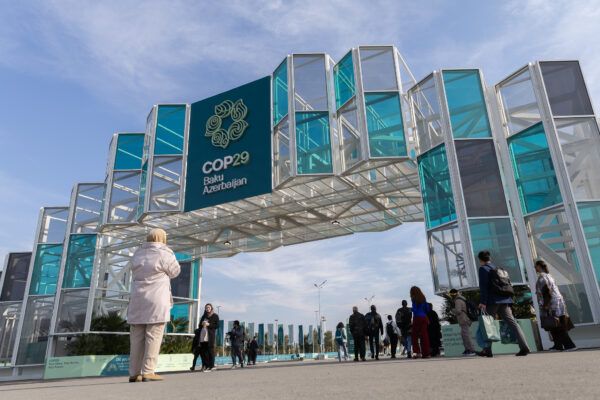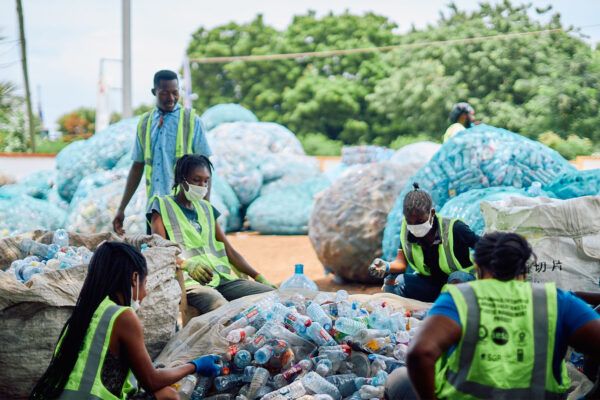Check out the latest news articles, research, opinions and efforts to tackle air pollution around the world.
Air quality news from COP29
Over 100 organisations, including Clean Air Fund, from across the health and climate community urged nations to invest in climate finance to protect global health. This included a focus on reducing super pollutants to avert near-term warming and avoid millions of premature deaths from air pollution.
We also called for immediate global action to address tropospheric ozone – a super pollutant with devastating effects on the climate, public health and agriculture in Forbes. The Fossil Fuel Non-Proliferation Treaty also penned an open letter to world leaders calling for a global plan to phase out fossil fuels.
The UK’s Prime Minister Keir Starmer announced he would commit the UK to slashing its greenhouse gas emissions by 81% by 2035, in a positive step for the country’s climate agenda.
Final COP29 outcomes, while showing progress on climate financing, don’t go far enough to tackle air pollution. Notable funding gaps remain for low- and middle-income countries, and despite recognition of the need for action on super pollutants they were largely absent from COP commitment texts. This puts significant expectations on next year’s Brazilian Presidency for COP30.
Cardiovascular disease in Africa is a ‘time bomb waiting to explode’
Experts from the Institute of Public Health and Wellbeing and The University of Edinburgh are concerned about the threat of cardiovascular diseases caused by air pollution in Africa. Their new paper, developed in collaboration with the World Heart Federation and supported by Clean Air Fund, warns that a lack of monitoring and research is preventing evidence-based policies and interventions, tailored to African communities, that could save lives.
ClimateTRACE updates emissions inventory, strengthening global air pollution data
Our partner organisation ClimateTRACE launched its latest emissions inventory, sharing for the first time monthly emissions data for every country and every major individual source of emissions in the world. The database now also tracks key non-greenhouse gas air pollutants like black carbon and tropospheric ozone. Watch the event recording.
‘Hazardous’ air quality in Pakistan brings school closures and hospitalisations
Air quality in Pakistan’s second-largest city, Lahore, well exceeded global air quality benchmarks this month, resulting in school closures and a plea for residents to stay indoors. The city of 14 million people topped the rankings of the world’s most polluted air, with air quality index (AQI) readings of up to 1900 in and around the city (the US Environmental Protection Agency considers readings over 300 hazardous). 40,000 people are reported to have been treated for respiratory illnesses.
Making air quality monitoring accessible
HabitatMap has launched a new miniature version of its low-cost wearable sensor. The organisation has also updated its website and app following the results of its yearly community survey. The organisation aims to make air pollution monitoring easier and more accessible to communities. The updated AirCasting Maps interface allows users to present data from across the world in a way that’s easy to compare and understand.
Haleon’s journey to decarbonise supply chains and improve air quality
As a member of the Alliance for Clean Air, private sector business Haleon is committed to reducing emissions, championing action and knowledge sharing. Sarah McDonald, VP of sustainability explores their journey to reduce Scope 3 emissions, with a goal of becoming more climate friendly and improving public health along the way.


